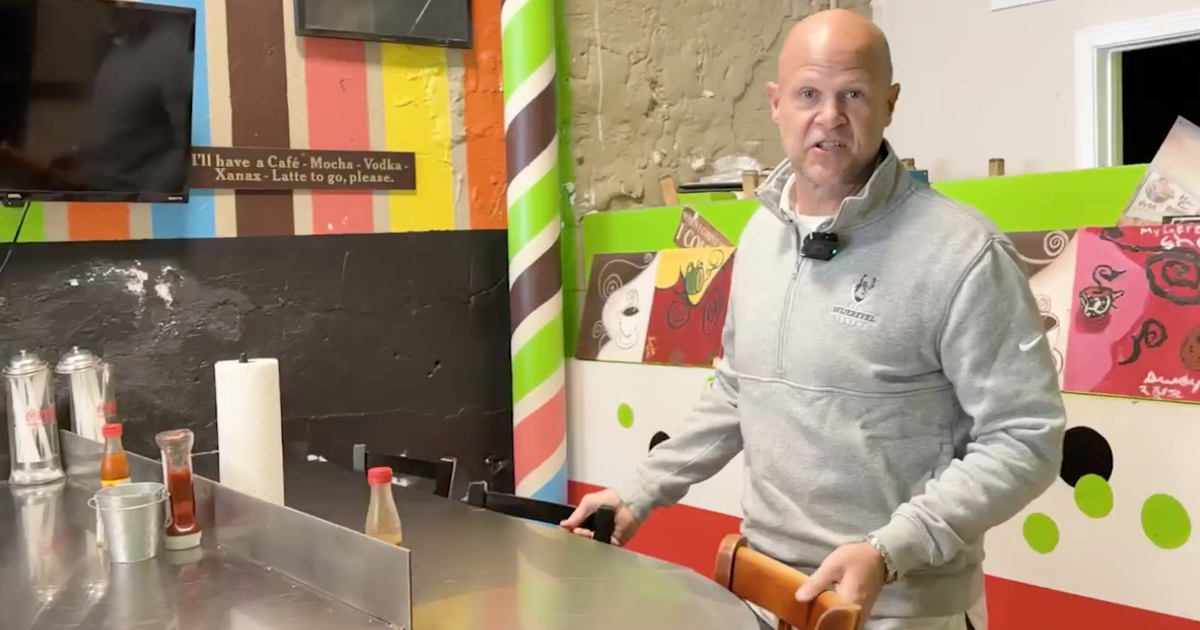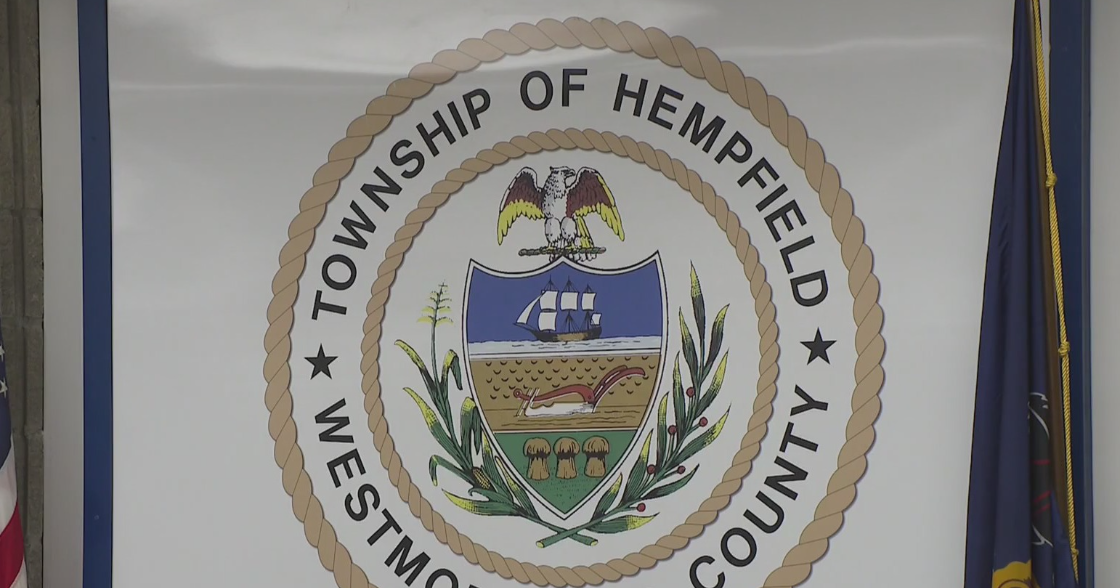How to be more sustainable this holiday season, according to expert Aja Barber
Aja Barber hasn't always been sustainable. Before she became an expert on global consumerism and sustainability, she was buying tons of fast fashion just like everyone else.
"I was buying a lot of clothing. I was buying things I didn't need. I wasn't wearing a lot of things that were sitting in my closet. And ultimately all of that was pretty unhelpful," Barber told CBS News. "I needed that wake-up call so I would change my ways and stop participating in the system as same-old-same-old."
Now, the author is dedicated to educating consumers about how their purchases can have large consequences on the environment. In her book "Consumed," Barber details how the supply chain of textile manufacturing contributes to the global climate crisis, leading to an overabundance of waste. Barber argues that what, how and why we buy can help save us money and the planet.
"The way that consumerism preys on our identities, we sometimes feel that we're the ones who are broken if we don't want to participate," Barber said. "We need to question the cycles that tell us spending is directly tied to our worth and our value."
CBS News spoke with Barber on why some people are hesitant about sustainability and why she thinks 2021 is the perfect opportunity to change the way we view the holiday season.
CBS News: What does having a sustainable holiday season look like?
Aja Barber: This year, my family and I aren't really doing presents. Because I haven't seen my niece and nephew in about two years, I'm going to be focused on quality time. The thing about kids is that they are expensive, but spending time is something that's invaluable and costs us nothing.
Just experiences because when I talk to them on the phone, they never go "Oh, remember that thing you bought us." They always talk about the things we did together where we made memories and that's what I'm focusing on.
We tend to have plenty, but the one thing we didn't have this past year was each other and having so much time away from my family, the focus will never be as much on material goods as much as it will be on hugs and cuddles and making memories for a lifetime.
How does sustainability interact with the holiday season, especially as it's currently defined by consumerism?
The idea of consumerism being tied to our emotions is as American as apple pie. You see it in media and films as an emotional trigger. In my book, I talk about cult films and the makeover scene. In movies, like "The Princess Diaries," "Clueless" and "She's All That," there's always a scene where a character who's a bit downtrodden by society gets a makeover and it always involves lots of clothing and then people start to treat them differently and respect them. So we start to tie our value to having new things and they don't add to our happiness. And if you look at the way that debt has been climbing in my generation alone, I'd say they aid in our unhappiness.
I would argue that this holiday season, we are being presented with the perfect opportunity to break the cycle in the ways in which the supply chain is breaking down. I think we need to actually look at what's happening within the holiday season and supply chain and take that as a moment to be more thoughtful and have these conversations with our loved ones and friends. Look, everyone is saying that some shelves might be empty. What if we tried to do it differently this holiday season?
So what sustainable items can I buy?
What if instead of buying a bunch of stuff for each other, what if we challenged each other to get stuff that's really useful? What if instead, I donated money to all of your favorite charities? What if, this holiday season, instead of buying your kids plastic crap that you probably don't even want in your house, you took them to the trampoline park instead?
If there's one thing you can do this holiday season, try to support a small business or a local one. Additionally, when you put your money into small businesses, particularly things that are local to you, more of that money stays in your community and when that money stays in your community, it's a win for everyone.
We have to look at alternative ways to show people that we love them that don't always come attached to material items.
Why do people have hesitations about sustainability?
Nobody wants to be to blame. We've become more consumers than citizens and when you're a consumer, you don't have to change anything. You're just a consumer, you're just buying things, whatever. But when you're a citizen, there's a responsibility to act and to care for others, to consider making some different decisions. We feel powerless in a lot of these systems. We look at political systems and go 'What can I do to change that? Nothing, so I might as well not really care."
But in actuality, every decision we make has a reaction to someone on this planet. And I think sometimes we don't really wanna grapple with that because it just fills us with this unbearable guilt and dread but in actuality, guilt isn't even helpful, so let's come up with a plan of action and put our heads together and come up with some solutions.
Is there a price limit on sustainability? How does it work if you're on a budget or simply don't have the funds?
The notion that all sustainable clothing is going to be $300 is something that we have to get away from. I think we have to acknowledge that we don't know the scale of the problem. We also don't know every brand that exists. There's a lot of choices out there.
Additionally, I would argue that the most sustainable people who have always existed in our society have been people who exist on or around the poverty line because it takes a lot of money to buy fast fashion in a way that upholds the system.
The person who has to buy four or five items a year from a big-box retailer isn't doing nearly as much damage as the person who is buying massive boxes of clothing from SHEIN and wearing it once or putting it on social media and then donating it to charity.
Why isn't it sustainable to donate extra clothes and presents?
People need to understand that currently, the fashion industry pumps out 100 billion garments a year. That's almost 13 times the human population. Additionally, 50% of our planet only lives on $5.50 a day. That's not the person buying the SHEIN outfits. We need to understand that when it comes to who's perpetuating the problems in this system, the calls are definitely coming from inside the house.
The clothing that we donate to charity, most charities only sell between 10 to 20 % of that. The other 80% of that is gonna end up in a landfill. Additionally, if it doesn't end up in a landfill, it's going to be packed up on a pallet and sent to the global south. Countries like Rwanda, Kenya and Ghana receive a lot of our waste.
Some of the clothing ends up in the ocean. It washes up on the beaches. The dyes in the runoffs from this clothing that's just sitting around end up in the water supply.
It's not that donating your clothing is bad. It's just the amount of clothing that's being donated means that it's not going to get re-bought. For a lot of fast fashion, the quality isn't good enough for it to have a second owner, which means if we don't want it, somebody in the global south probably doesn't want it either.
It's not a problem that doesn't have an impact on humans, it's just impacting humans that aren't our neighbors.
What can everyday consumers do to be more sustainable?
Investigate your own buying. Investigate yourself honestly and ask, am I the person who buys 68 items of clothing a year? And don't lie about it, because it was definitely me for a while. I think we just need to recognize that our decisions do impact others and if you are that person, ask yourself "Why am I shopping this way?" and try and think about removing yourself from the system where you don't feel compelled to buy that much clothing.
No matter where you are in an income level, I think it's good to ask yourself in the store, "Will I be able to wear this 50 times? Is the quality of this garment good enough that it will last 50 times? Will someone legitimately want this if I decide that it doesn't work out in my wardrobe anymore? If the answer to any of these questions is no, you need to leave that item on the rack.
Could consumers on their own be enough to make large enough change?
Yes! We need to start not just being vocal but making different decisions. We've got to spread our money around. A lot of these corporations are so big they have more money than the country's they produce in. So who is gonna check them?
We need regulation obviously, but as long as we're all continuing to consume things like "This has nothing to do with me," what lawmaker is gonna be incentivized to tackle this system?
We have to change ourselves, then our culture and then we can change the laws and the corporations. So I would say the first thing to do is look at yourself and the second thing to do is investigate who you're giving your money to. Ask yourself, do I like this company? Are they actually doing good things? If I feel bad about this company, what's something that I can do? Do I even have to spend my money here? Because some of us have a choice, and I think it's time we start making different ones.




